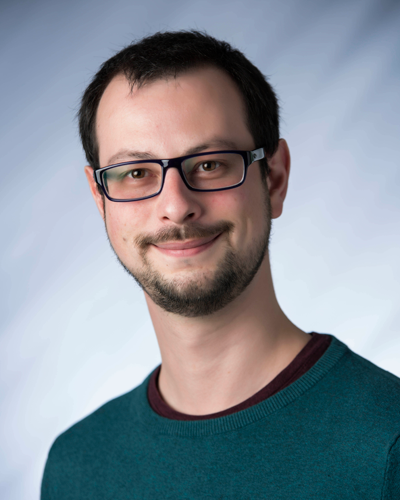IMDEA Networks

PhD Thesis defense: Enhanced connectivity in wireless mobile programmable networks

Luca Cominardi, PhD Student, IMDEA Networks Institute and University Carlos III of Madrid
PhD Defense
The infrastructure of current 4G mobile networks is being challenged by new data-hungry and latency-sensitive services appearing every day. To cope with these challenges, the infrastructure of next generation mobile networks (5G) is expected to embrace the network softwarization paradigm jointly with a distributed architecture. As a result, 5G networks will evolve from a hardware-based centralized infrastructure, as deployed in 4G, to a software-based distributed infrastructure. This would allow mobile operators to program, control, and dynamically instantiate heterogenous networking functions within their infrastructure, resulting in higher flexibility and lower operational costs.
This thesis first experimentally validates the Software Defined Networking (SDN) paradigm with regards to the 5G KPI of average service provisioning time from 90 days to 90 minutes. It therefore designs and implements an SDN development framework which is then used to implement and provision a set of relevant use cases between 40 minutes and 14 hours on a mid-size testbed. An SDN-based Distributed Mobility Management (DMM) is then proposed and compared to state-of-the-art solutions showing the greater flexibility provided by SDN. The SDN development framework and the SDN-based DMM have been published as open source: https://github.com/ODMM/openflow-dmm
Next, this thesis delineates the main components of an SDN-based integrated backhaul and fronthaul network supporting heterogeneous control plane and data plane technologies, including mmWave. A reference packet-based mobile transport network is then proposed and analysed against the 5G network slices requirements. Results show that the queueing discipline plays an important role and that frame pre-emption is required for some ultra-low latency traffic. The developed simulation framework, namely SimPype, has been published as open source: https://simpype.readthedocs.io/. An adaptive telemetry system is then proposed for mobile transport networks in order to overcome the limitations of OpenFlow related OAM procedures, resulting in greater scalability and flexibility.
Finally, this thesis proposes a multi-Radio Access Technology (RAT) convergence approach leveraging on an integrated edge and fog computing environment offering ubiquitous virtualization capabilities. Opportunities and challenges of joint edge and fog orchestration are investigated leading to the design of a harmonized architecture based on the integration and extension of existing standards, i.e., ETSI NFV, ETSI MEC, and OpenFog/IEEE 1934. Ultimately, an exemplary use case, namely fog-assisted robotics, is proposed and thoroughly described illustrating the benefits brought by such integrated edge and fog concept compared to nowadays architectures and infrastructures.
About Luca Cominardi
Luca Cominardi received his B.S. and M.Sc. degrees in Computer Science from University of Brescia, Italy, in 2010 and 2013, respectively. He also received a M.Sc. degree in Telematics Engineering from the University Carlos III, Madrid, in 2014 where is currently pursuing a Ph.D. in the same field. He has 5+ years of experience in international research projects (e.g., EU-funded) on wireless mobile networks involving top companies in the telecommunications sector. He has strong communication and collaboration skills developed by working on daily basis in international teams spread across multiple countries in Europe, Asia, and America. He also covered management roles in research projects as work package leader and standardization organization as rapporteur. He has solid prototyping experience of networking and virtualisation mechanisms on Linux systems. Finally, he served as technical programme committee in top-tier conferences (e.g., IEEE WCNC, IEEE VTC).
The thesis defense will be conducted in English
PhD Thesis Advisor: Dr. Carlos J. Bernardos, University Carlos III of Madrid, Spain
University: University Carlos III of Madrid, Spain
Doctoral Program: Telematic Engineering
PhD Committee members:
- President: Carla Fabiana Chiasserini, Politecnico di Torino
- Secretary: Vincenzo Mancuso, IMDEA Networks Institute
- Panel member: Diego Rafael López García, Telefónica I+D
More info
- PhD thesis: “Enhanced Connectivity in Wireless Mobile Programmable Networks”
- IMDEA Networks Publications: Theses
- PhD Students at IMDEA Networks
- Alumni Network

